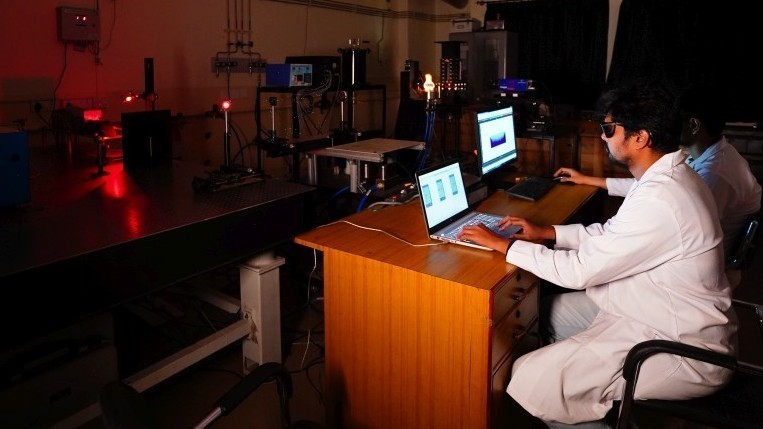
Propulsion research involves study of thermo-fluidic aspects, such as gas dynamics of the internal flows, thermochemistry and combustion processes, of aerospace propulsion systems. Some of these propulsion systems include turbine-based air-breathing engines, ramjet, and scramjet-based air-breathing engines for hypersonic propulsion and solid and liquid rocket engines for launch vehicles and space applications. The Aerospace Propulsion group at IISc is working on various thrust areas that include gas turbine combustion, supersonic combustion, liquid atomization, characterization of sprays from aircraft and rocket injectors, aviation biofuel sprays, multiphase combustion, green propellants, energetic materials, and aviation fire safety. The group combines complementary experimental, computational, and analytical approaches. The primary focus of the propulsion group is to investigate a wide range of problems ranging from – fundamentals such as propellant characterization, hydrodynamics, turbulence-chemistry interactions, pollutant emissions, combustion instabilities – to the development of advanced technologies for sustainable aerospace propulsion.
The propulsion group contributes to understanding fundamentals of flow, sprays, and combustion processes that are relevant to various research organizations and industries. The research on energetic materials has led to technology transfer to start-up firms and ISRO. A novel additive manufacturing technique has been patented and adopted for preparing solid propellant grains with desired structural characteristics. The combustor flow instability analysis simulation software developed here is being used in several research labs worldwide. Currently, novel experimental approaches are being developed to quantify air/fuel mixing, soot and NOx emissions, temperature, and species concentrations in reacting flows.
The group has expertise in high fidelity non-intrusive optical diagnostics, high pressure combustion experiments, fuel spray characterization, energetic material characterization, and state-of-the-art computational tools to model turbulent reacting flows.
Our future goals encompass a multifaceted approach aimed at addressing key challenges in propulsion technology. Firstly, we aspire to deepen our understanding of sprays, combustion, and emission behavior to facilitate the development of next-generation sustainable aviation fuel-based combustion systems. This involves conducting fundamental research to optimize combustion processes for enhanced efficiency and reduced environmental impact. We are also committed to advancing the understanding of flame stability and aero-thermodynamics in the context of supersonic combustion, with a focus on developing propulsion systems for supersonic and hypersonic air-breathing applications. Lastly, we are dedicated to the development of novel energetic materials under the theme of “green propellants” to meet the demands of future space propulsion applications. By prioritizing sustainability and innovation, we aim to contribute to the advancement of propulsion technology for a cleaner and more efficient future in aerospace exploration.
Key Focus Areas
- High energy materials; Propellants, Catalysts for space thrusters, Thermal Analysis; Monopropellants, Fuel production through thermochemical routes
- Sprays; Atomization; Liquid/solid interaction, Spray formation is a complex physical process involving liquid jet/sheet instability, ligament-to-droplet breakup, and secondary atomization. Research is focused on the breakup and atomization of liquid jets from non-circular orifices, atomization process in gas-centred swirl coaxial atomizers, and biofuel sprays from aircraft engine atomizers. Studies are also conducted on the impingement of droplets on unheated and heated solid surfaces.
- Combustion Instability; Hydrodynamic stability; Numerical methods; Large eddy simulation
- Gas turbine combustion, liquid rocket injectors, high speed propulsion, static and dynamic stability of turbulent flames, power generation; fire safety, advanced laser diagnostics
- Combustion; Flame stabilization; Soot and NOx formation